I had lunch a few weeks back with Ben S., Renaissance man – chef, photographer, comedian, lawyer, dedicated pop culture consumer – and friend of the site. He had seen Man of Steel recently and not liked it very much, whereas I’d found it entertaining. Ben’s chief complaint was that it “didn’t feel like a Superman movie.”
“Well, we don’t have a rich template to draw from,” I said. “There have been, what, four Superman movies besides Man of Steel?”
“Plus Superman Returns, which most people don’t count.”
“True,” I said, pretending like I’d been making an arch point and that I hadn’t actually forgotten it. “So four movies, and most people write off the last two, leaving a template of exactly two films to define what constitutes a ‘Superman movie.'” There were also some animated features, many of which we’d heard good things about but none of which we’d seen, that we agreed to ignore.
This got Ben and I thinking, though, about what constitutes a Superman movie (or a “Superman story”), compared to other action movies.
Consider Die Hard or Indiana Jones and the Last Crusade, which in my canon are near the peak of the action/adventure genre. The dramatic tension for most scenes in those movies, the question that must be resolved before the scene can end, is “can our hero do this?” Can John McClain overpower the blond guard with the assault rifle? (Yes). Can Dr. Jones learn where his father has been taken? (Yes) Can John McClain escape Hans and the other Germans uninjured? (No, his feet get cut up by glass) Can Dr. Jones escape from the castle without attracting attention? (No, he sets the drawing room on fire) And so on.
And yet, the astute critic notes, the scenes with the most catharsis and emotional resonance revolve around a different question altogether: “will our hero do this?” Here the tension arises not from capability but from choice. Will John McClain hand over the detonators to save Ellis’s life? (No) Will Dr. Jones trust his father over Elsa? (No) Will John McClain charge onto the roof to save the civilians from the explosives? (Yes) Will Dr. Jones let the Holy Grail go? (Yes)
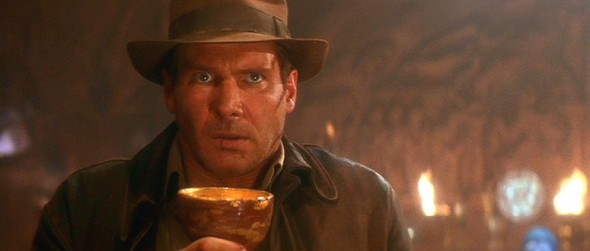
Indiana … let it go.
Questions of will are more emotionally resonant than questions of capability because they make it easier for us, the relatively schlubby audience, to identify with the protagonist. We can’t fling ourselves off skyscrapers or pilot a speedboat between two tanker ships, but we would put our lives on the line for the people we love (or we like to believe we would).
The character of Superman is an extreme case of this form of characterization, almost a deliberate handicap, in that there’s nothing he canonically can’t do. Various writers have posed limits on Supes’ capabilities in the past, and other writers have disregarded them. He is usually strong enough to lift a skyscraper; he is sometimes strong enough to kick the Moon out of orbit; he is, rarely, strong enough to fly around the Earth so fast he goes backward in time. He’s vibrated fast enough to pass through solid objects and he’s used his super-breath to erase someone’s memory. Nothing, with the right set of excuses, is off-limits to Superman.
Therefore, with the Man of Tomorrow, the question of capability is taken entirely off the table, and Superman’s actions and choices become entirely a question of will. As I jokingly mentioned on the podcast in which we discussed Man of Steel, the challenges placed before Henry Cavill’s Superman are always resolved with the same formula:
- He struggles for a bit
- He screams
- The challenge is overcome
And that’s it. If Superman doesn’t get something accomplished, it’s clearly because he didn’t scream loud enough.
Given the flavorless decision tree that confronts Superman as a character (“have you screamed yet? Y/N”), it’s easy to say that he’s a dull character to write for, and several critics have asserted that. But this isn’t the case, no more so than the magical “post-scarcity” economy of Star Trek or extropian science fiction is free of drama. Even if an infinitude of physical outcomes are available to us, we are still limited by the absolute force of entropy embodied in time. Superman can do anything, but, within the limits of his super-speed, he can’t do two things at once.
Superman, as much as we knock him for caricature, is a rich character. He’s the last heir of a race of pseudo-fascist invulnerable aliens, leaps and bounds beyond the capabilities of anyone else on the planet, and classically handsome. But he’s also a middle American farmboy, raised with that melange of progressive attitudes and conservative demeanor that people call “the American way.” These two codes pull in different directions, and a skilled writer can work with them.
Some examples: in Superman (1978), the Man of Tomorrow has to choose between stopping one of two missiles, targeting opposite coasts of the United States. Does he keep his word to Miss Teschmacher and stop the one on the East Coast first, or save Lois Lane from the missile targeting the San Andreas fault?
In Superman II, General Zod orders his underlings to take advantage of Superman’s conscience by inflicting massive collateral damage, putting civilians at risk. Superman is forced to divert his attention from the Kryptonian criminals, torn between saving human lives and putting Zod and his flunkies down.
And, to step away from the movies for a bit, there’s John Byrne’s “General Zod” storyline from the comics in 1988. In a parallel dimension, General Zod and two other renegade Kryptonians reach Earth and slay most of its inhabitants – a death toll numbering in the billions. Superman is summoned to that dimension and defeats them, stripping their powers with a type of Kryptonite that doesn’t affect him. However, Zod taunts Superman with the threat that he’ll find a way to regain his powers – remarkably self-aware for a comic-book villain – and then do the same to Superman’s Earth. Unable to devise a prison that will hold three superhumans as powerful as he is, and unwilling to put his newfound home at risk, Superman takes the regrettable step of exposing them to a fatal dose of Kryptonite, killing them.
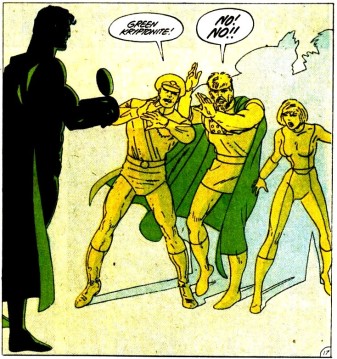
Naming the thing that’s killing you: a time-honored tradition.
So it is possible to challenge the man who can do anything. The difference is that all of his challenges must be questions of will, not questions of capability. Delve into the complexities of Kal-El’s character, find two different motives, and set them against each other. Voila – instant drama! (Sidenote: this will work with any character, not just invulnerable Kryptonians)
Why does this work so well? If willpower is purely an internal battle, how can it have the same cathartic resonance as external, physical stakes? Aren’t the mental guiderails created by our moral codes just products of our choices and, therefore, subject to being overruled at any time? Wouldn’t John McClane’s fight in Die Hard have been much easier if he simply could have decided, “Okay, from now on I don’t care about the hostages,” and merely had to shoot his way out of a tall building? And Indiana Jones would have put the Nazis in quite a bind if, after Donovan shot his dad, he’d simply said, “Eh, let him die. We weren’t that close anymore and he’s lived a full life. Besides, it’d be foolish to value one man’s life over the evil that Hitler could inflict with the Grail.”
(Sidenote #2: there are apparently hundreds of people on the Internet who will complain when a film’s protagonist does not follow exactly that sort of dispassionate logic when confronting an obstacle. Overthinking It is predicated on the notion that one can’t say “You’re viewing it wrong” to any person’s interpretation of a movie, so I won’t say that to those types. However, I will say that there’s a deep, emotional dimension to movies that they’re missing out)
The reason that doesn’t happen in movies – or in real life, I’d hope – is because we subconsciously recognize as true something that a German philosopher made explicit.
One of the few quotes I keep coming back to on the podcast (drink!) is Arthur Schopenhauer’s line, “Man can do what he wills but he cannot will what he wills.” It comes from his 1839 essay “On The Freedom of the Will,” a response to the Royal Norwegian Society of Sciences’ academic question on whether it was possible to philosophically prove free will. Schopenhauer’s conclusion: no.
[A]s little as a ball on a billiard table can move before receiving an impact, so little can a man get up from his chair before being drawn or driven by a motive. But then his getting up is as necessary and inevitable as the rolling of a ball after the impact. And to expect that anyone will do something to which absolutely no interest impels them is the same as to expect that a piece of wood shall move toward me without being pulled by a string.
We can do whatever we want, Schopenhauer argued, but what we want is set for us. The will is “free” insofar as there are no physical constraints on it, but not free of motives. Motive (“what he wills”) dictates action (what “man can do”).

The Last Son of Göttingen
In Schopenhauer’s philosophy, character is determined through how a person responds to motives. Schopenhauer emphasized the empirical aspect of character in his writing: no matter what we think we know about a man, we can not truly say how he will react until we watch him in a given situation. This fundamental unknowability applies to ourselves as well. “Ultimately,” Schopenhauer said in The World as Will and Representation, “we become acquainted with ourselves as quite different from what a priori we considered ourselves to be; and then we are often alarmed at ourselves.”
Morality is discovered through action. It’s not enough merely to label a person as good or evil. We have to see them act well or poorly in order to judge them. This is the cornerstone of the “show, don’t tell” exhortation in every introductory fiction class. We the audience won’t believe your character is the Hero unless we see them doing heroic things. We won’t believe they’re cool unless we see them doing cool things. The tiniest gesture – from James Bond fixing his tie after some tremendous feat to John McClane counseling a cop who accidentally shot a kid – adds a new dimension to a fictional creation.
(Sidenote the third: one of the most powerful tricks in narrative is to use this gesture to reverse our interpretation of a character’s nature. Done right, this always works – even in the last act. Consider how relieved we are when the scoundrel Han Solo returns to blow Darth Vader off of Luke’s six in Star Wars: A New Hope. Consider how deeply we gasp or curse when a loyal ally turns out to be a stooge of the villain, even if that ally made nothing but useful, likeable contributions up to that point. We’re always willing to forgive a villain, and we’re always shocked at the fall of a hero)
Viewed in that light, Man of Steel misses a few opportunities.
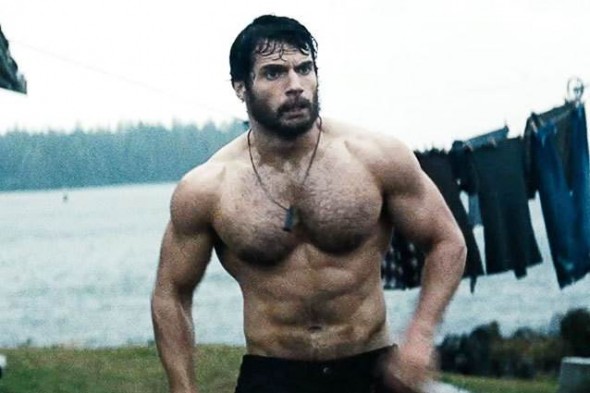
Henry Cavill’s pecs? Not a missed opportunity.
There are three big challenges or questions that drive Clark Kent through Man of Steel:
(1) Where did I come from? (Act One)
(2) What were my people like? (Act Two)
(3) Can I save the Earth? (Act Three)
All of these uncover interesting points about Kal-El’s personality and capabilities, but none of them take the form of dilemmas. There are few junctures, if any, where Clark is forced to make a hard choice.
In Act One, Clark slowly migrates northward toward the secret government facility surrounding the Kryptonian crash site. There’s never really a question of whether he will do that or not, no force pulling him back, keeping him from wanting to know his past. Given what we know about Superman as a 21st-century audience, as well as what the movie demonstrates through flashbacks, there’s also no question of whether or not he can get to the facility. So while it’s interesting to watch Clark meander toward the Arctic, we only get a one-dimensional sense of the kind of man he is.
In Act Two, the surviving Kryptonians arrive, in the form of General Zod and his cohort, and demand that Superman be handed over. Clark finally has an opportunity to meet someone of his same species, someone he should in theory be closer to than the people he’s spent his life around. Here, we get a bit of a conflict: should Clark keep himself secret (and risk the destruction of Earth) or reveal his presence (to someone who, frankly, sounds like an asshole)? This is a moral dilemma, but it’s not a very hard one.
In Act Three, Zod initiates his plan to remake Earth in the image and likeness of Krypton, deploying the world engine that will wipe out all humans. Clark intervenes once the Kryptonians show up at Ma Kent’s house, forces them to retreat, and then destroys the world engine. He and Zod have a donnybrook that levels a good chunk of Metropolis, ending with Zod about to heat-blast some trapped civilians. To save their lives, Clark breaks Zod’s neck.
That conflict, in Act Three, is the biggest missed opportunity in Man of Steel. I don’t object to Superman killing someone. Zod has always been at his best in that role of someone who matched Superman pound for pound, someone whose strength and cruelty could force Superman to make the ultimate choice. But the stakes seem so uncertain. Given the tussle that they’ve had up to that point, was there ever a time when Clark wasn’t going to kill Zod? Did he establish a code against killing at some prior point in the movie that I’m overlooking? Clark’s decision to kill Zod is only meaningful if there’s another motive arrayed against it, and I didn’t see one.
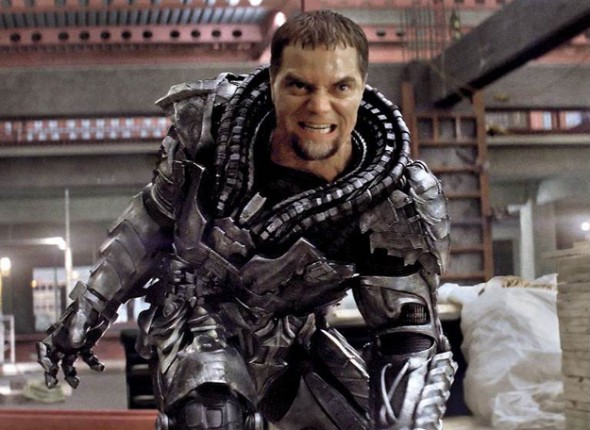
GRR!
In talking with Ben (remember the frame story?), we came up with a hypothetical version of Man of Steel in which that choice might have resonated further: remove Jor-El from the latter half of Act One. Clark discovers the Kryptonian spacecraft and gets a recorded message from his real dad. However, the message is either garbled, incomplete, or one-directional, not a conversation. Clark learns about his origin and about the fate of his home planet, but is left wanting to know more.
Then, in Act Two, Zod arrives not as a creepy voice from space but as a benevolent visitor. He lands on Earth, promises to share some of his “guidance” and “advanced technology” to obedient Earthlings, does Michael Shannon’s imitation of a smile, waves for the cameras, and oh by the way, have you heard of this guy Kal-El? He’d be about my height, solid build, faster than a speeding bullet?
Clark, under the impression that there were no more living Kryptonians, shows up like an eager puppy. Zod embraces him like a visiting uncle and invites him aboard his starship. Once there, he walks him through his plan for Earth, a la Ben Kingsley to Robert Redford in Sneakers. Clark reacts in horror. Zod responds with confusion at first, then gets hurt at being rejected. Then, like all psychopaths, he overreacts, ordering his men to kill Kal-El.
Now we have a much more resonant Act Three. Clark now has conflicting motives: wanting to preserve and reminisce with the few remaining Kryptonians vs. wanting to save the humans he’s known all his life. He doesn’t want to kill Zod, his last link with his true species, but he knows that Zod, left unchecked, will eradicate all humans. Which motive will triumph? What type of empirical character will be revealed? Superman can do what he wills but, like all mortals, can not will what he wills – so what is his will?
In closing: I don’t want to read too much into the studio’s choice of title, but it might mean something that the movie is called Man of Steel. Superman has several nicknames and epithets – the Last Son of Krypton, the Man of Tomorrow, Kal-El – each of which evokes a different aspect of his persona. But “Man of Steel” evokes images of his strength. We call him that to remind ourselves of how impossibly strong Superman is. It’s at least an interesting coincidence, if not a deep connection, that Man of Steel devotes more time to showing off how strong Clark Kent is than how moral he is.
Regardless of whether you think that was a deliberate production choice or not, it’s clear that there are definitely opportunities to portray Superman as a moral, conflicted, heroic character, not just an unstoppable force, and that Man of Steel may have left some of those opportunities on the table.
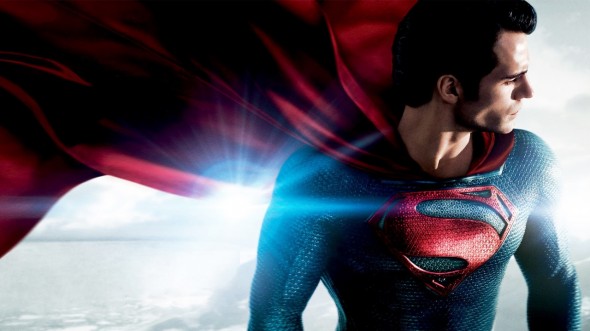
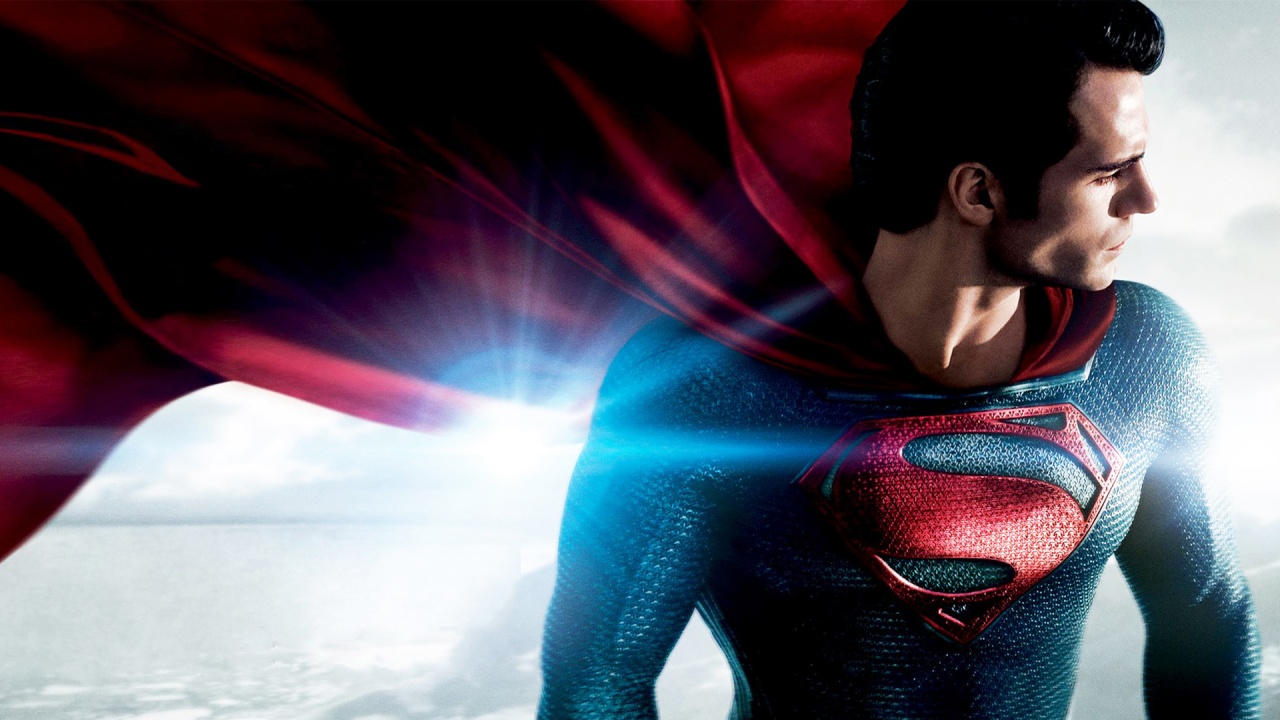
I am honored to have inspired this piece in any way.
Maybe it’s me, but I feel like there’s a trend of missed opportunities in recent high-profile blockbusters.
– Man of Steel: you’re absolutely right – introducing an emotional connection between Supes and Zod would have been quick and easy, and would have made their confrontation more meaningful.
– Avatar: why not say, at some point in the movie, “Earth will die without this Unobtanium”? Suddenly there’s real conflict (would you be willing to oppress an innocent people for your own?) instead of a simple “good vs. greedy” fairytale situation. Would’ve made the movie just 3 seconds longer.
– Elysium: there’s many things that could/should have been done to introduce meaning to this movie, but one that is really easy would have been to show regular Elysians expressing intense, heartfelt fear towards the Earthlings. That would have partially justified Elysium’s unnecessarily strict measures towards Earth, and it would have given some excuse for the excess violence of the third act.
Am I just nitpicking here? Am I becoming more negative or do movies care less than they did when Indiana Jones and Die Hard were still trilogies?
Regarding a trend toward lost opportunities, don’t forget that Indiana Jones and Die Hard are the best exemplars of a decade of action films. Just sticking to the oeuvre of one Mr. Cameron, The Abyss is as much of a lost opportunity as Avatar, if you ask me: an opportunity to show a 2001-style profoundly alien and barely comprehensible intelligence in a compelling way tossed aside for an anti-Cold War message that was heavy-handed, hypocritical, and–by the time the film was released–dated.
Perhaps the best recent examples of action films that generate drama about what the hero (and others) will do rather than what they can do are the Dark Knight films–which given that Man of Steel’s marketing positioned it as the Superman version of those films makes it all the more a missed opportunity. But that doesn’t mean there aren’t contemporary action films with good character drama.
BTW: I meant a stylistic excuse for the violence in Elysium, in terms of depicting Earthlings as fear-inducing. I didn’t mean to say that violence towards Elysians would have been justified.
*John McClane, not John McClain
I disagree for a simple reason: Superman IS NOT a moral conflicted character: he is “super” not for his strenght or intelligence but because of his higher morals. This is his defining superpower.
If you strip him of this you got only another superbeing that arrogates himself as defender of humanity.
Look at Morrison’s “Superman AllStar”: his superman is never in conflict with his morals he always have a clear understanding of the conseguences and the greater picture of all his actions. He is really a beacon of hope because is an ispiration on acting like him.
This is Superman: otherwise you are only adding motivation to a gritty conflicted character that solves problems by punching.
My understanding is that he is not conflicted in the sense that he is unwilling to act on his better impulses, but in that his virtuous goals sometimes conflict. He cannot use his abilities to help at every opportunity and keep his secret identity. He cannot both work at the Daily Planet and be Superman all the time.
It is the conflict between two good but mutually incompatible goals that can introduce drama into the story about a man who can do anything, but not everything.
Sorry but I still not agree: IMHO the suspance and emotion in a Superman story should not come from the doubt on WHO superman chooses to save or WHICH virtous goal he chooses to pursue but HOW he manage to save everyone and everything.
This because he is not like me, you or his villains: he has a clear, superior understanding of moral, reasons and effects of his action. He is better because of this, his judgement is not obfuscated by petty human-like traumas and fears.
He is the embodiement of Hope: “There’s ALWAYS a way!” (Strangely enough this is the motto of both Doctor Who and Agent Coulson and not Superman…)
Too bad many of his writers don’t understand this and misuse him casting him as troubled with his identity (MoS) or deranging him into a fascist dictator (Injustice)
The temporal limitation on Superman calls to mind one of the earliest Astro City comics about Samaritan–Astro City’s answer to Superman. He has an earpiece constantly telling him about disasters around the world. Any time he does anything he is essentially making a choice not to do other things that will save lives. It is an interesting problem, and one that rings true on smaller scale for people who do various kinds of good for a living (how to balance your own need to remain sane against the fact that you could be helping right now and is this game of Mario Kart really more important).
I can also see why it’s a problem we don’t want to look too closely at in a more conventional superhero narrative. We want to watch Superman pull a kitty from a tree without thinking about whether there’s someone burning to death in a factory in Taiwan at the same time.
I disagree. While the movie contains many flaws and some of the overall plot changes suggested would be an improvement, I think this portray of Superman contained more moral depth and realism than all previous movies.
The Christopher Reeves’ Superman is a saint — he always tried to do the ‘right’ action no matter the circumstances – no hesitation. He may have had some challenges deciding between two competing ‘right’ decisions (e.g. the two missiles scenarios), but he was unwavering in his selflessness. Yawn.
Man of Steel, by contrast, portrays a young boy growing up with two very profound truths: 1) he is infinitely superior to everyone around him 2) he is an outsider that will not be accepted if others know #1 (validated by the reaction of the military when he reveals himself).
Even when he performs acts of heroism, he is rewarded with distrust and fear. The movie shows this alienation repeatedly and the toll it takes on his psyche. He is conflicted and we see him struggle to maintain self-control under torment by his inferiors (bully in school, trucker in bar). We see him accept this otherness by removing himself from society, taking remote and temporary jobs and eschewing meaningful relationships. It is not an inevitability that he will come forward when Zod arrives. Why should he come to the aid of a world that has/will never accept him?
Rather than a sparkling clean refutation of Nietzsche’s Ubermensch, this Man of Steel has moral agency. He is not good. He chooses to DO good.